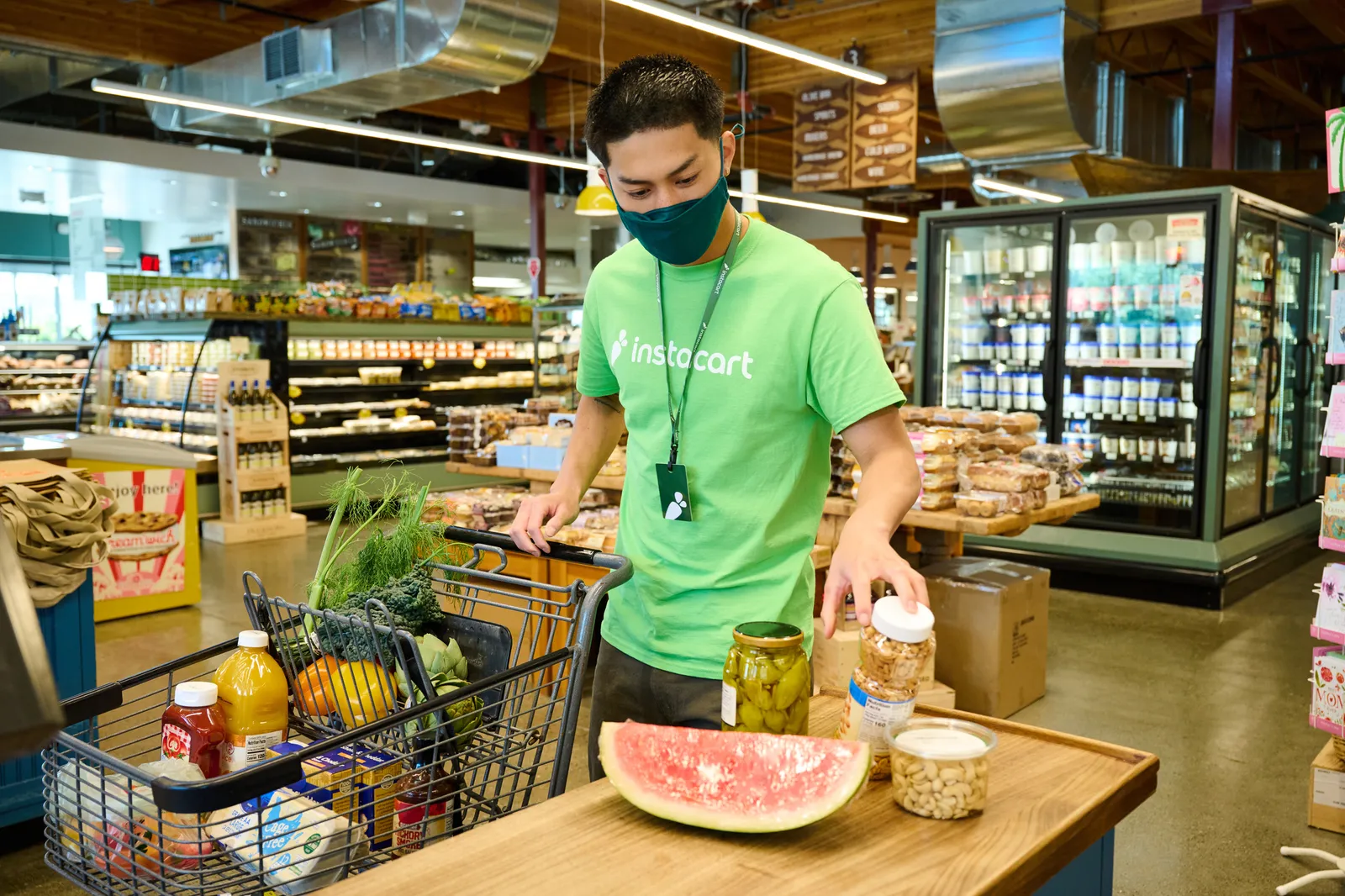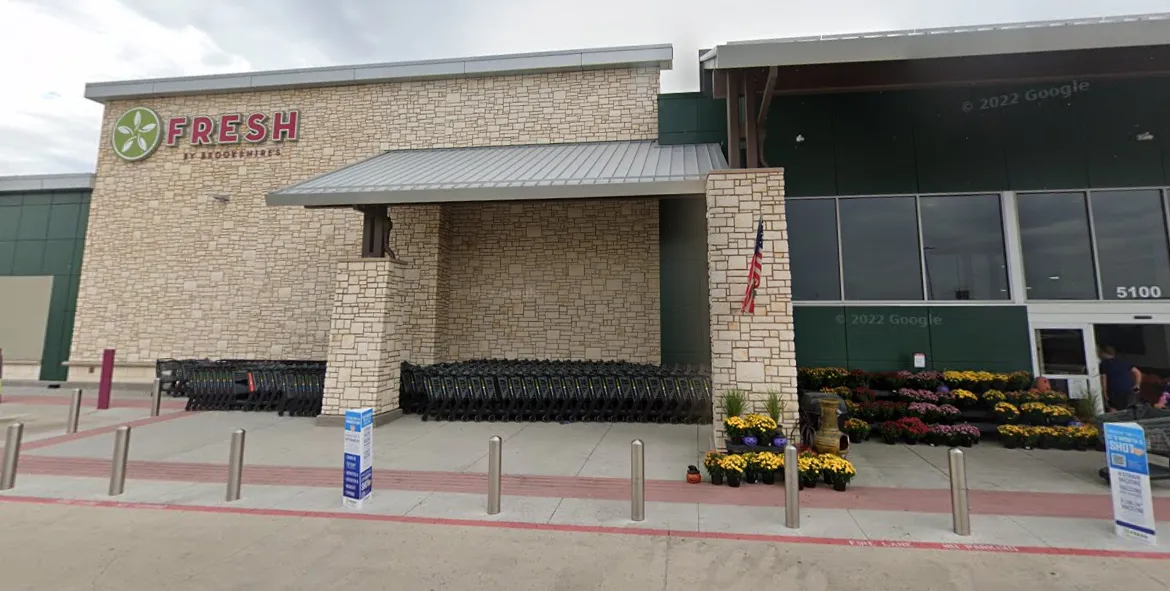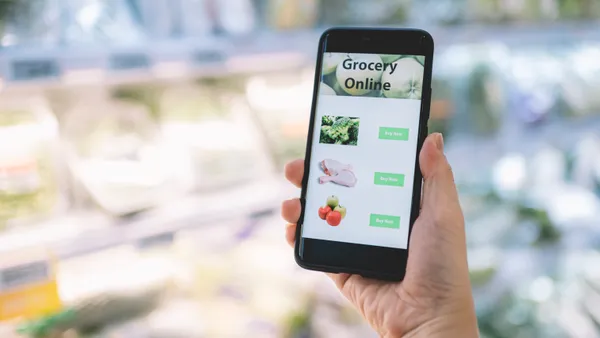The Friday Checkout is a weekly column providing more insight on the news, rounding up the announcements you may have missed and sharing what’s to come.
Instacart may rely heavily on large grocers to sustain it, but it wants small grocers to know it can be valuable for them, too.
The grocery technology company’s first economic impact report highlighted how it’s boosted revenue for its partners. The company claims it has increased U.S. brick-and-mortar grocery partners’ revenue by $7.96 billion since its launch and by $2.29 billion for grocers with fewer than 50 workers.
Instacart has helped create over 231,000 jobs with more than 66,000 at small grocers, per the report.
Instacart is touting itself as a helpful hand to smaller players at a time when many large and mid-size grocers are figuring out how to control more of their e-commerce operations in-house. As it straddles a middleman role between grocers, consumers and CPGs, Instacart has expanded into in-store technology to offer a one-stop-shop for omnichannel solutions that grocers, especially smaller ones, might not have the resources or expertise to handle on their own.
And while Instacart is spotlighting how it helps small businesses, the company still needs its larger partners. Just a few months earlier, Instacart disclosed in a filing with the Securities and Exchange Commission that its top three retailer partners accounted for about 43% of Instacart’s gross transaction value in 2021, 2022 and the first half of 2023.
If large players move away from third-party services like Instacart, the company may have to rely heavily on its small grocery partners.

In case you missed it
Kroger requires return to work
More than 5,800 of the grocer’s regional office employees at its Cincinnati locations will be required to return to work starting Feb. 5, 2024, according to a company spokesperson.
Workers will be expected to be in the office or in the field on assignment for a minimum of three to four days, an increase from the two-day-a-week requirement Kroger has had in place since 2021, The Cincinnati Enquirer reported earlier this week.
Grocery workers announce four day strike
United Food and Commercial Workers Local 663, representing over 650 grocery employees at five Brainerd Lakes, Minnesota, area union grocery stores, announced plans to strike from Dec. 22-25 over unfair labor practices, according to a Wednesday announcement from the local union.
The union members at numerous Cub Foods, SuperValu and Super One Foods locations have been working without a collective bargaining agreement since Dec. 3, the announcement noted.
Brookshire Brothers to deploy a new digital shopping platform
The regional grocer will deploy eGrowcery’s digital tools for its online ordering and fulfillment operations beginning Jan. 1, 2024, according to an emailed press release.
“The customer will benefit from being able to use digital coupons and navigate promotional savings while our store team optimizes the picking process to help save time and money,” John Alston, Brookshire’s CEO and president, said in a statement.

Number of the week: 1.7%
That’s the annual pace at which grocery prices rose in November, the U.S. Bureau of Labor Statistics reported Tuesday. The figure is the lowest rate of grocery inflation since June 2021, when it was 0.9%
Impulse find
H-E-B’s slam dunk commercials
The Texas grocer is once again partnering with NBA franchise the San Antonio Spurs for “hilarity and hijinks” filled commercials featuring players Keldon Johnson, Jeremy Sochan, Devin Vassell and rookie Victor Wembanyama, who stands at a whopping 7-foot-3.
The first two commercials include Sochan showing off his one-handed skills and Wembanyama taking full advantage of his wingspan to carry nearly a dozen filled H-E-B grocery bags.
H-E-B has promised the team’s mascot, the Spurs Coyote, will make an appearance as it rolls out more commercials in early 2024












